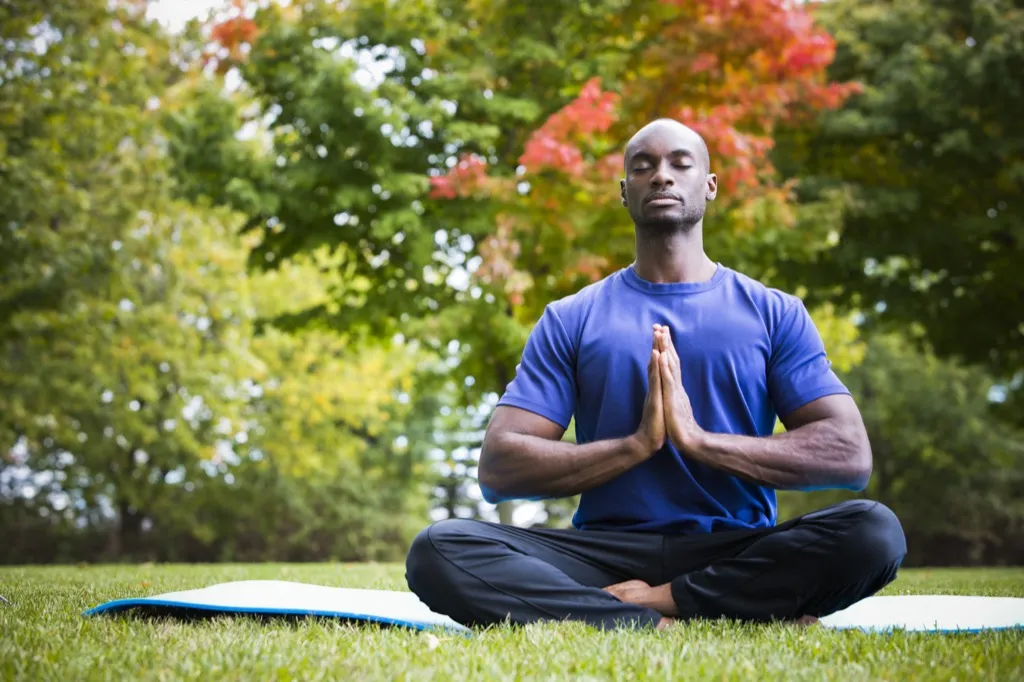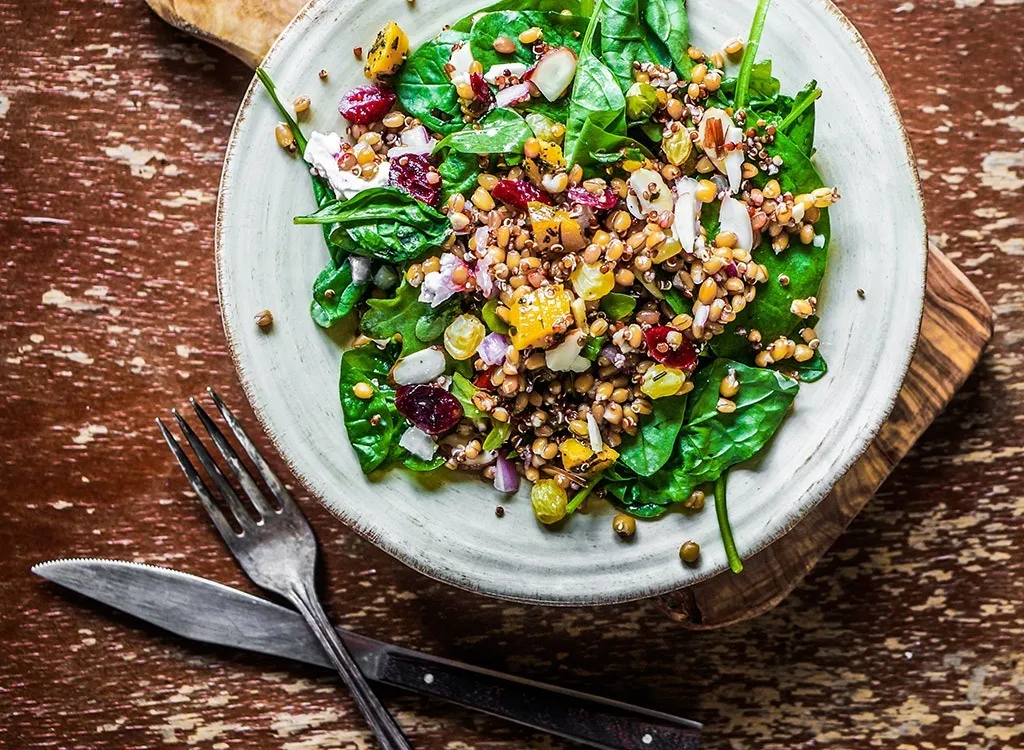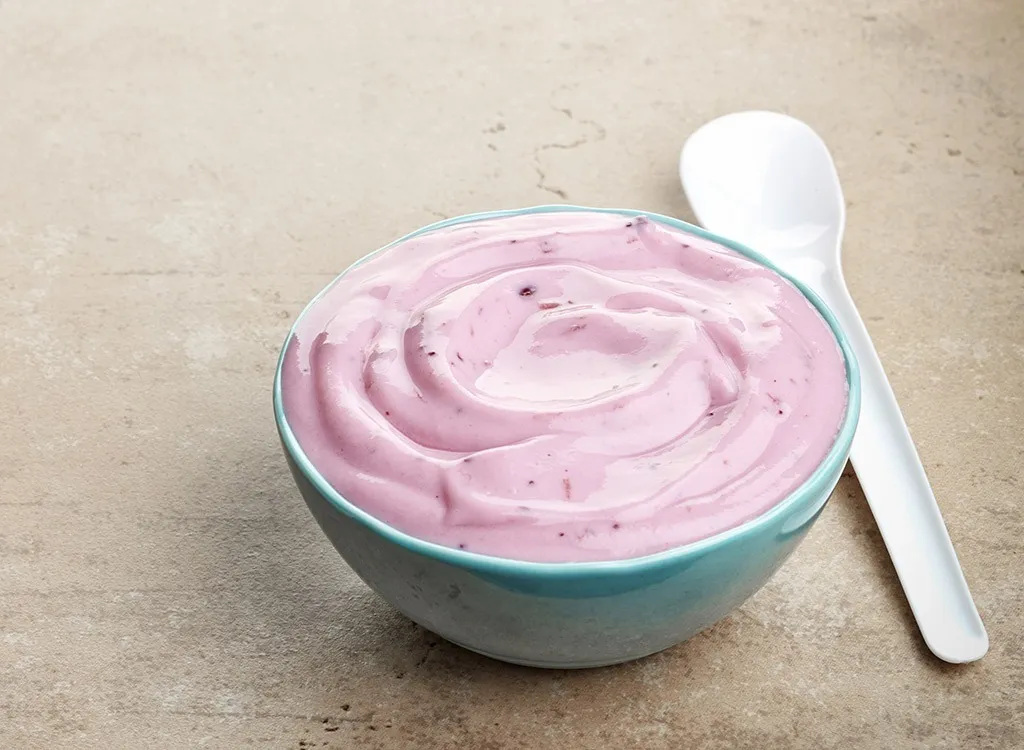100 Ways to Live to 100

At the beginning of the 20th century, the average lifespan was 31 years; today, it’s almost triple that, thanks to the cumulative effect of many, mostly minor, life tweaks that science has determined to have a real effect on longevity. The sooner you start applying these tips, the sooner you can start planning what you’ll be doing 50 years from now. So, what are you waiting for? Get started on these 100 ways to live to 100!
1
Be nicer.

A 2012 study published in the journal Aging found a correlation between optimism and longer lifespans. That’s right: A positive attitude toward life can be the difference between checking out early and being the last one at the party.
2
Stay on top of the news—maybe just not on TV.

While sitting on the couch all day probably won’t help you make it to 100, tuning into the news just might. One 2011 study published in the International Journal of Public Health found that subjects who had the most exposure to mass media—including television news, online news, newspapers, and magazines—were more likely to follow a healthy Mediterranean diet, which, according to WebMD, has been linked to increased heart health and longevity. So it might be high time you start picking up a newspaper on your morning commute.
3
Practice yoga.

It’s well-established that yoga is relaxing. But it turns out, all that relaxation can have some seriously age-defying cumulative effects. According to one Vox review of more than 50 studies, practicing yoga may improve quality of life for diabetes patients, reduce cardiovascular disease risk, and help manage high blood pressure.
4
Cut down on meat.

A 2013 study of more than 70,000 people that was published in JAMA Internal Medicine found that vegetarians have a 12 percent lower risk of premature death than meat-eaters. And while that correlation might be related to diet, the researchers also noted that vegetarians tend to be more highly educated, less likely to drink alcohol or smoke tobacco, and more likely to get a healthy amount of exercise than non-vegetarians.
5
Get married.

According to a 2013 study published in journal Annals of Behavioral Medicine, baby boomers who remain hitched are less likely to die early than their single peers. The findings were based on a survey of 4,800 people born in the 1940s.
6
Sleep naked.

Believe it or not, sleeping in the buff could help you live longer, according to one 2014 study published in the journal Diabetes. That’s because as we sleep, our bodies cool slightly, causing reparative growth hormones to be released. If you’re too warm, you get fewer of those hormones. Plus, being cooler reduces the body’s level of cortisol, the stress hormone that can lead to overeating, diabetes, and disease-causing inflammation.
7
Laugh more.

Not only is laughing fun, but it’s also good for you! One 2016 study published in the journal Psychosomatic Medicine found that women with a strong sense of humor had a 73 percent lower risk of death from heart disease, an 81 percent lower risk of death from infection, and a 48 percent lower risk of death from all causes.
8
Eat nuts.

If you’re nuts for nuts, you’re in luck: One 2016 study published in BioMed Central found that people who eat nuts have a 39 percent lower risk of early death than people who don’t; walnut eaters, in particular, have a 45 percent lower risk of dying early.
9
Be conscientious.

In their book The Longevity Project, authors Howard S. Friedman and Leslie R. Martin wrote that being conscientious was one of the best predictors of a long life. They posited that people who are diligent and responsible may be more likely to adopt healthy behaviors, may be less prone to disease, and may find more success in relationships and in the workplace than those who are more careless.
10
Try an intermittent fast.

According to a 2015 study published in the journal Rejuvenation Research, people who practiced intermittent fasting—eating for six days and fasting for one—showed an increase in a longevity-boosting gene called SIRT 3 after 10 weeks. And before you ask: The participants didn’t follow a particularly healthy diet. “Feast” diets included things like Oreos, cake, and bagels with cream cheese.
11
Move to Hawaii.

A 65-year-old Hawaiian can expect to live another 16.2 years in good health. That’s compared to the 10.6 years of good health that a 65 year old in Mississippi can expect, according to 2013 data from the Centers for Disease Control and Prevention (CDC).
12
Lift weights.

In a 2013 study of healthy older adults published in Archives of Gerontology and Geriatrics, researchers found that 32 weeks of exercise training that focused on balance and lower-extremity muscle strength (read: weight training) helped improve participants’ bone density. According to the researchers, this reinforces the idea that weight training can have positive effects on the aging process.
13
Embrace the aging process.

Turns out, embracing your age could help you live longer. One 2002 study published in the Journal of Personality and Social Psychology found that adults who developed positive attitudes about getting older lived more than seven years longer than those who had negative feelings about it.
14
Don’t eat takeout.

It could cause you to tap out. A 2012 study published in Public Health Nutrition found that people who cook at home up to five times a week were 47 percent more likely to still be alive 10 years later than those who didn’t.
15
Take a stand.

Want another reason to join the standing-desk craze? Sitting for fewer than three hours a day could add two years to your life, according to a 2012 analysis of data published in BMJ Open.
16
Turn off the TV.

According to 2012 research published in the British Journal of Sports Medicine, every hour of TV you watch after age 25 cuts your lifespan by about 22 minutes. Researchers also found that people who spent an average of six hours a day watching TV died nearly five years earlier than people who didn’t watch any TV at all.
17
Walk fast.

Attention, walkers: Your pace could say quite a bit about your mortality. According to a 2019 study published in the journal Mayo Clinic Proceedings, participants who walked at a more brisk pace (three miles an hour or 100 steps a minute) lived longer than their slower counterparts. What’s more, the correlation existed across all weight categories—from the underweight to the morbidly obese.
18
Consider becoming an expat.

For years, Japan has had the world’s longest life expectancy (84.1 years in 2016), according to the Organization for Economic Cooperation and Development. But you don’t have to move too far away to experience the benefits of living abroad: Even those in Canada live an average of three years longer than Americans (81.8 years versus 78.6 years, respectively).
19
Change your altitude.

A 2011 study published in the Journal of Epidemiology & Community Health found that the 20 U.S. counties with the highest life expectancy had an average altitude of 5,967 feet above sea level. That added 1.2 to 3.6 years to a man’s life, lowering the risk of death from heart disease.
20
Marry someone younger.

You’re only as old as you feel. It’s supposed to be a joke, but there may just be some truth to it—especially if you listen to 100-year-old Daisy Dunnett, who says she owes her longevity to having a younger husband. “I really think I would be dead if it was not for him,” she told SWNS.com. “If you’re elderly and on your own, it’s easy to give up and not feed yourself properly.”
21
Don’t go to bed angry.

In a 2010 study of 1,700 married adults published in the PLOS Medicine journal, researchers from Brigham Young University found that the more arguing there was in a relationship, the worse the partners’ health.
22
And if you get divorced, stay social.

The authors of The Longevity Project found that compared to men, divorced women tend to thrive, as do single and widowed women. Why? “Women were able to rely on other friends, whereas many men depended on their wives for their social networks and so were devastated when they lost these ties,” one of the researchers said.
23
Brush and floss.

You’ve got more than cavities to worry about if you don’t brush and floss as often as your dentist recommends. Poor oral hygiene has been associated with shortened life expectancy, according to the findings of a 2013 study published in the Journal of Dental Sciences. Maintaining a healthy mouth can lower your risk of heart disease, dementia, and stroke. So, it might be time to invest in a really good electric toothbrush.
24
Drink coffee.

Because a cup of joe is high in antioxidants, it can actually lower your risk for diabetes, liver damage, several cancers, and depression, according to a 2018 study published in the journal Progress in Cardiovascular Diseases.
25
But don’t go crazy.

You’ll want to drink some coffee, but definitely not too much. A long-term 2013 study published in the journal Mayo Clinic Proceedings found that those who drank an average of more than four cups of coffee a day had a 21 percent higher risk of death than those who consumed less than that amount.
26
Keep learning.

According to a 2008 Harvard University study published in the journal Health Affairs, people who stay in school for at least 12 years tend to live longer than those who don’t complete high school. The research involved an analysis of data from the National Longitudinal Mortality Study.
A 2012 report from the CDC’s National Center for Health Statistics went even further, finding that those who earned a bachelor’s degree lived nine years longer than those who only completed high school.
27
Look good.

One 2003 study published in the journal Evolution and Human Behavior found an association between attractiveness and longevity. Researchers asked people to rate the attractiveness of 17-year-olds from pictures taken of them in the 1920s. Those who scored higher in attractiveness lived longer—to 76, on average—than their less-attractive counterparts, who lived to an average age of 69.
28
Live in a city.

One 2013 study published in the American Journal of Preventative Medicine found that urbanites tend to live longer and stay healthier than their country-mouse counterparts. It’s thought that’s because those in the sticks have higher rates of cigarette use, obesity, and chronic health conditions such as diabetes and hypertension.
29
Cope with any childhood trauma.

According to a 2013 study published in the European Journal of Epidemiology, experiencing a traumatic incident as a child could actually make you more likely to die early.
30
And reframe it in a positive light.

A 2013 study published in PLOS One journal showed that male Holocaust survivors lived longer than men of the same age group who immigrated to Israel before Nazi rule. The study’s authors write that this counterintuitive finding could be a display of “post-traumatic growth,” leading these men to “greater meaning and satisfaction in their later lives.”
31
Find your spirituality.

In a 2016 study published in JAMA Internal Medicine, researchers discovered that women who went to any kind of religious service at least once a week had a 33 percent lower chance of dying during a 16-year follow-up period than their non-religious peers.
32
Nap.

A regular short nap dramatically cuts the risk of dying from coronary heart disease, especially for working men. A massive 2007 study of nearly 24,000 people over six years published in JAMA Internal Medicine found that occasional nappers had 12 percent lower coronary mortality, while those who napped at least three times a week for at least 30 minutes had 37 percent lower mortality.
33
Eat blueberries.

More than five million Americans are estimated to have Alzheimer’s disease—a number that’s expected to nearly triple by 2050 if there are no significant medical breakthroughs, according to the Alzheimer’s Association. But here’s the thing: A 2010 study published in the Journal of Agricultural and Food Chemistry found that older adults who indulged in antioxidant-rich blueberry juice for just 12 weeks scored higher on memory tests than those receiving a placebo.
34
Eat less.

Smaller portions and less frequent overeating are just two of the reasons that the population of Okinawa, Japan, has a large concentration of centenarians, according to Dan Buettner, author of The Blue Zones: Places on Earth Where More People Live Longer, Healthier Lives.
35
Cut the sugar.

The link between increased sugar and diabetes risk is right up there with “smoking causes lung cancer.” But 2015 research from the Mayo Clinic has found that added dietary fructose—either as table sugar or the main component of high-fructose corn syrup—may be the top cause of diabetes. So cutting sugar alone could slash deaths from the condition.
36
Get your omega-3s.

A 2013 study published in the journal Annals of Internal Medicine showed that older people with the highest levels of omega-3s in their blood lived 2.2 years longer (on average) than those with low omega-3 blood levels. You can find plentiful omega-3 fatty acids in fish, as well as some vegetables and seeds.
37
Volunteer.

Volunteers may live longer than people who don’t give of their time—and that’s something that’s backed by science. One 2012 study published in the journal Health Psychology posited that people who give back could be rewarded with lower blood pressure and therefore a longer lifespan.
38
Think about death.

Several studies (like this 2018 research analysis published in Current Directions in Psychological Science) have shown that when we’re reminded of our own mortality, we’re more likely to make better decisions about our own health, like using sunscreen, smoking less, and exercising more.
39
Slow your resting heart rate.

A 2018 study published in the journal Heart discovered that a key predictor of long life in otherwise-healthy middle-aged and elderly men was resting heart rate—regardless of fitness level or other healthy behaviors. According to Harvard Health, you can reduce yours by exercising more, reducing stress, avoiding tobacco products, and maintaining a healthy weight.
40
Eat spinach.

Along with decreasing your risk of stroke and osteoporosis, spinach is also a rich source of plant-based omega-3s and folate, which help reduce the risk of heart disease, according to a 2015 study published in the journal Clinical Nutrition Research. Aim for one cup or fresh spinach or 1/2 cup cooked per day.
41
Always take the stairs.

A 2010 study published in the European Journal of Cardiovascular Prevention & Rehabilitation calculated that among people with a sedentary lifestyle, simply taking the stairs was enough physical activity to burn body fat and lower blood pressure—so much so that it cut their risk of early death by 15 percent.
42
Go easy on the processed meats.

A 2013 study published in the journal BMC Medicine linked a diet heavy in processed meats—like sausage and bacon—to a higher risk of dying from cancer and heart disease.
43
Work out 150 minutes per week.

Meeting or exceeding the World Health Organization’s recommendation of 150 minutes of moderate exercise a week can add about four years to your life, as compared to never exercising, according to the American Heart Association.
44
Make friends at work.

A 2011 study published in the journal Health Psychology followed 820 adults for 20 years and found that those with the most social support from coworkers lived the longest. People who kept to themselves during their 9-5 shift were 2.4 times more likely to die during the study period.
45
Smile like you mean it.

For a 2010 study published in the journal Psychological Science, researchers examined smile intensity among a series of photos of baseball players from the 1950s. Those who didn’t smile in their pictures lived an average of 72.9 years, while the biggest smilers lived seven full years longer.
46
Wash your hands.

The simple act of hand-washing could save more lives worldwide than any vaccine or other medical intervention, according to the CDC.
47
Run—in moderation.

According to a 2012 analysis of data presented at the European Association for Cardiovascular Prevention and Rehabilitation, a moderate jogging habit can add between five and six years to your life.
But before you lace up for ultramarathon training, consider 2015 research published in the journal Mayo Clinic Proceedings. It found that people who run more than 20 miles a week, faster than seven miles an hour or more than five times a week, seem to lose that longevity boost.
48
Eat broccoli.

A 2011 study published in the American Journal of Clinical Nutrition found that people who ate cruciferous vegetables, such as broccoli, cauliflower, and cabbage, tend to possess the ability to live to 100. Researchers suggest this may be tied to the veggies’ vitamin C and nutrient count.
49
Find a reason to live.

A 2012 study of 1,400 senior citizens published in JAMA Psychiatry found that those who believed they were living for a reason had a 30 percent lower rate of cognitive decline than those who didn’t. The belief may protect your brain from the effects of Alzheimer’s disease.
50
Be rich.

Having more money in the bank means having a better chance of living to 100, according to a 2019 study published in the JAMA journal. That’s because the one-percenters among us have better access to education, health care, and a lower risk of violent crime.
51
Get a pet.

Research shows that both cat and dog owners tend to live longer than their petless peers. One 2009 study published in the Journal of Vascular and Interventional Neurology found that owning a cat could cut your risk of heart attack by nearly one-third. Not only that, but a similar 2017 study published in the journal Scientific Reports found that people who owned dogs reduced their risk of death by 11 percent.
52
Get enough sleep…

According to a 2019 study published in the Journal of Sleep Research, getting fewer than six hours of sleep a night comes with a 10 percent increase in the risk of death. Studies have pinpointed seven to eight hours of shuteye as optimal.
53
…but not too much.

But long sleepers could face a 30 percent higher risk of premature death, according to a 2010 study published in the journal Sleep.
54
Have more sex.

A 2010 study of 1,165 middle-aged men published in the American Journal of Cardiology showed that having sex once a month or less is linked with a 45 percent higher risk of heart disease than having sex two to three times a week.
55
Become more religious.

According to a review of research published in 2006 in the Journal of the American Board of Family Medicine, attending weekly religious services can add 1.8 to 3.1 years to your life expectancy.
56
And if you’re going to church, join the choir.

According to findings from a 2013 study published in the journal Frontiers in Psychology, singing in a choir has the same health benefits as yoga. They found that the heartbeats of choir members begin to synchronize, resulting in a calming effect on the mind and body.
57
Make healthy changes.

A 2013 study in Lancet Oncology demonstrated that making healthy life changes is associated with longer telomeres, the “caps” at the ends of chromosomes. Shorter telomeres have been linked in past research to cell aging, as well as higher risks of age-related diseases. Adjusting your daily habits so that you eat whole foods, exercise, meditate, and lean on your support system may add years to your life.
58
Hope for a daughter if you’re a man.

According to a 2006 study of a rural Polish population published in the American Journal of Human Biology, having daughters may increase the lifespan of fathers. For every daughter born, the dads studied lived about 74 weeks longer.
59
Take more vacations.

A 2014 analysis of the famed Framingham Heart Study published in The Lancet showed that the more frequently men took vacations, the longer they lived.
60
Have a couple of kids.

According to a 2016 study published in the Journal of Epidemiology & Community Health, becoming a parent can increase longevity by decreasing your risk of conditions such as cancer and heart disease. But, according to the study, this health benefit didn’t increase beyond two children.
61
Eat Mediterranean.

A 2011 study published in the journal Age showed that the chances of living longer increased 20 percent from eating a Mediterranean diet, meaning foods rich in healthy fats (like olive oil), fish, and fresh produce.
62
Cycle.

A study presented at the European Society of Cardiology Congress in 2013 showed that French cyclists in the Tour de France generally live longer than their non-cycling peers. The study included data from 786 French cyclists who participated in the race at least once between 1947 and 2012.
63
As you can!

A 2011 study of Copenhagen cyclists presented at the European Society of Cardiology found that men who pedaled the fastest lived about five years longer than men who pedaled slowest. The take-home? Physical activity is good, but vigorous activity is even better.
64
Dance!

Research published in 2013 in the journal Anthropology & Aging found that people (in particular, older people) can dance their way toward improved health and happiness because of the activity’s social, mental, and physical benefits.
65
Don’t retire.

The Longevity Project found that most men who made it to extreme old age had successful, satisfying careers and continued to work—at least on a part-time basis—into their 70s.
66
Eat more fiber.

A 2011 study published in the Archives of Internal Medicine found that people who met dietary guidelines for fiber—25 grams per day for women and 38 grams per day for men—had a lower risk of dying over a nine-year period.
67
Don’t go crazy with vitamin supplements.

Although many health professionals advocate taking vitamins to help prevent deficiencies in vital nutrients, a 2007 Copenhagen University review of 815 clinical trials published in JAMA found that taking supplements had a detrimental effect on lifespan.
68
Drink Greek coffee.

Residents of the Greek island of Ikaria tend to live to age 90 or older. A 2013 study on 71 men and 71 women who lived on Ikaria published in Vascular Medicine found that those who drank boiled Greek coffee on a daily basis had better endothelial functioning than those who drank other kinds of coffee.
69
Swim more often.

A 2003 study published in the International Journal of Aquatic Education and Research showed that regular swimming cut death risk for men by 50 percent—compared with running, walking, or being sedentary.
70
Keep your mind active.

Another secret of the long-lived people of Okinawa, Japan, is to keep your brain actively engaged with games and intellectual stimulation. A 2008 WebMD survey found that 89 percent of centenarians keep their minds active.
71
Live in a blue state.

The 10 U.S. states with the highest life expectancy were also reliably Democrat-leaning in presidential elections, according to a 2018 study published in the JAMA journal.
72
Be creative.

A 2012 study on U.S. military veterans published in the Journal of Aging and Health showed that those who exhibited the most creativity reduced their mortality risk by 12 percent.
73
Add some events to your social calendar.

Frequent social engagements may add as much to your lifespan as cutting cholesterol or lowering blood pressure. That’s the finding of Thomas Glass, associate professor at the Johns Hopkins Bloomberg School of Public Health, who tracked the activities of nearly 3,000 people aged 65 and older over 13 years.
74
Explore new territory.

According to a 2012 study published by the Cochrane Library, changing up your routine and frequently engaging in challenging and intellectually stimulating activities can reduce your risk of Alzheimer’s later in life.
75
Work hard.

A hardworking personality trait extends life by an average of two to three years, according to research cited in The Longevity Project.
76
Eat tomatoes.

Foods high in antioxidants, particularly deep-colored fruits and vegetables, can help fight the oxidizing effect of UV rays. One 2011 study in the British Journal of Dermatology found participants who ate five tablespoons of tomato paste (a highly concentrated form of fresh tomatoes) daily showed 33 percent more protection against sunburn than a control group.
77
Meditate.

Studies show that meditation helps improve many different types of conditions, including depression, anxiety, chronic pain, diabetes, and high blood pressure, as well as improving concentration, memory, and reasoning skills, according to the EOC Institute.
78
Don’t work for a jerk.

According to Gary Namie, Ph.D., founder of the Workplace Bullying Institute, more and more research indicates that being bullied and unduly stressed at work can lead to serious health consequences. Seek support from your family and counsel from a doctor as to when it’s time to throw in the towel. “Nobody deserves cardiovascular disease for a paycheck,” says Namie. “No matter how big the paycheck is.”
79
Only eat when you’re hungry.

Dietitian Zoe Nicholson, co-founder of the moderation eating movement, advocates “intuitive eating,” or eschewing regularly scheduled meals and mindless snacking to only eat when we’re hungry. “When we eat intuitively, our bodies crave a variety of nourishing food, we are much less likely to overeat or comfort eat and it becomes easier to maintain a stable healthier weight,” she says.
80
Drink in moderation.

Ever notice that more than a few centenarians in the news attribute their long life to drinking good whiskey? It’s not just chatter: In 2010’s Dietary Guidelines for Americans, the Department of Health and Human Services said there was “strong evidence” that moderate drinking prevented heart disease, and “moderate evidence” that it helped prevent dementia.
What’s moderation? In a meta-analysis of 34 studies that followed subjects for years, the American Medical Association said that “one to two drinks per day for women and two to four drinks per day for men are inversely associated with total mortality.” But keep it moderate: Binge drinking and alcoholism have been shown to shorten lifespan (by up to a decade for the latter).
81
Guzzle green tea.

Researchers from the Norwich BioScience Institutes recently discovered that the polyphenols, a type of micronutrient in green tea, blocks something called VEGF, a signaling molecule in the body that triggers plaque buildup in the arteries that can lead to heart attacks, stroke, and vascular disease. The life-extending brew may also ward off wrinkles by fighting inflammation and improving the skin’s elasticity, keeping you young both inside and out.
82
Blast belly fat.

Visceral fat—the blubber that wraps itself around your internal organs, AKA belly fat, makes you twice as likely to die of any cause as actually being obese, according to a 2008 study published in The New England Journal of Medicine. That’s because it spews toxins and causes diabetes, heart disease, liver failure, and all sorts of other problems. The good news: You can target belly fat by eating delicious foods that actually turn off the genes responsible for its production.
83
Take precautions against colon cancer.

As it stands now, colon cancer is the third-leading cause of cancer death among men in the U.S., according to the American Cancer Society. But when precancerous polyps are removed from the colon before they turn malignant, colon cancer is almost completely preventable. That’s why it’s essential to get a preventative colonoscopy as often as your doctor recommends, which is usually once every 10 years.
84
Be realistic.

While optimism is a quality that’ll vastly improve your quality of life, being pragmatic can also lengthen your life. According to Leslie R. Martin, one of the authors of The Longevity Project, blind optimism can make you less able to deal with life’s setbacks and overcome them.
85
Eat yogurt.

The health benefits of this 2,000-year-old food are not disputed: Fermentation spawns hundreds of millions of probiotic organisms that serve as reinforcements to the battalions of beneficial bacteria in your body. That helps boost your immune system and provides protection against cancer, according to Harvard’s School of Public Health. Not all yogurts are probiotic, though, so make sure the label says “live and active cultures.” Aim for one cup daily.
86
Drink apple juice.

In a 2010 study published in the Journal of Alzheimer’s Disease, researchers found that drinking two glasses of apple juice per day is associated with the breakup of plaques in the brain that can lead to dementia.
87
Get preventative care.

One 2007 study published in the Scandinavian Journal of Public Health followed 2,000 30- to 49-year-olds over a period of 15 years. The researchers discovered that those who sought regular preventative care experienced a “significantly greater” lifespan than those who didn’t. (You can find the National Institute of Health’s current guidelines for regular checkups and testing here.)
88
Protect your skin from the sun.

Avoiding sunburn lowers your chances of developing skin cancers like melanoma, which can be one of the hardest malignancies to treat. You can lower your risk by covering up or slapping on sunscreen to prevent a burn.
Just don’t go overboard and refuse to ever leave the house. Sun exposure is crucial for your natural production of vitamin D, which is associated with a lower risk of several cancers, according to a 2012 study published in the journal Frontiers in Endocrinology.
89
Go to bed one hour earlier.

Research published in 2014 in the Journal of Sleep Research found that people who normally slept for seven hours or less a night and went to bed only one hour earlier experienced a measurable drop in blood pressure. That lowers your risk of having a heart attack or stroke.
90
Analyze your family tree.

Take a look back at your family tree to make note of what diseases you’re likely predisposed to thanks to family history. If a certain disease occurred in more than one close relative or occurred in a relative at an earlier age than expected, you could be at a greater risk for that disease than the average person, according to Understanding Genetics.
91
Dump soda—even diet.

Research says it may shorten your life. A 2014 study published in the American Journal of Public Health followed 5,300 healthy people who regularly drank soda and found that they experienced advanced cell aging by up to four years—potentially trimming their lifespan by that much. And even diet soda is bad news: The high levels of phosphorus in dark sodas weakens bones.
92
Eat salmon.

Fatty fish, such as tuna, wild salmon, mackerel, and sardines, contain high levels of omega-3 fatty acids, nutrients that have been proven to lower overall mortality risk by up to 27 percent and decrease the odds of dying from heart disease by about 35 percent.
They also offer many anti-aging benefits. Eating a few servings of fatty fish each week has been shown to help guard against Alzheimer’s disease and help reduce joint pain and stiffness by suppressing the production of enzymes that erode cartilage, according to Harvard’s School of Public Health.
93
Get your vitamin K.

Thanks to their high vitamin K content, noshing on leafy vegetables like kale, collards, and mustard greens can help slow cognitive decline, according to a 2017 study published in the journal Neurology. In fact, the researchers discovered that people who ate one to two servings of the greens daily had the cognitive ability of a person 11 years younger than those who consumed none.
94
Be adaptable.

Researchers at the 2010 Georgia Centenarian Study interviewed 244 people age 100 or older over an eight-year period. Their results, published in the journal Current Gerontology and Geriatrics Research, found that adapting to and coping with stressful situations was crucial for successful aging. Those who meditated on stressful situations were healthier than those who made quick emotional reactions.
95
Mind your cholesterol.

A 2015 study published in BMJ followed a group of men for 50 years and found that the men who lived to be 100 had three things in common: They didn’t smoke, they drank no more than four cups of coffee a day, and they had healthy cholesterol levels, which greatly reduces the risk of heart attack and stroke.
96
Feel in control and worthwhile.

According to a 2014 study published in The Lancet, people who felt the most control over their lives and felt that it was worthwhile had a 30 percent lower chance of dying than those who felt the least in control.
97
Eat sweet potatoes and turmeric.

This one’s another tip from the centenarian-dense Okinawa, Japan. About 60 percent of these folks’ diet involves sweet potatoes, which are high in flavonoids, fiber, and good carbs. Also a dietary staple: Turmeric, a spice with antioxidants that help prevent cancer and heart disease, according to 2018 research published in the journal Advanced Biomedical Research.
98
Quit smoking.

This one really is a no-brainer. But if you insist on seeing a study that shows smoking cigarettes is like playing Russian Roulette, here you are: 2012 research published in the journal The Lancet followed 1.3 million people between 1996 and 2001. The study showed that giving up cigarettes helped subjects live 10 years longer than if they’d continued smoking.
99
Know that it’s never too late.

The authors of The Longevity Project emphasize that you can make positive changes, even small ones, and see a measurable effect. Just don’t be intimidated and get down on it. “Thinking of making changes as taking ‘steps’ is a great strategy,” the authors advise. “You can’t change major things about yourself overnight. But making small changes, and repeating those steps, can eventually create that path to a longer life.”
100
Enjoy life.

Ultimately, the Longevity Project researchers isolated one trait common to centenarians that’s the strongest predictor of survival: how they feel about their health, well-being, and support systems. If you don’t feel good about where you are today, make a plan—however small—using this list as a starting point, and begin changing that today! And for how to stop today, check out The Single Most Important Thing You Can Do That Will Help You Quit Smoking.